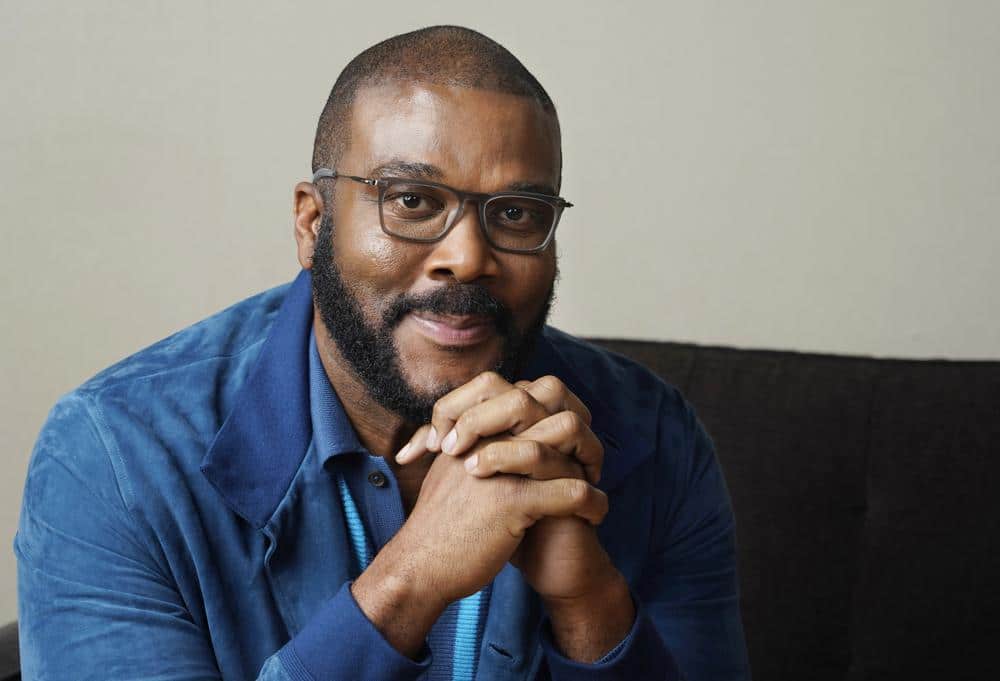Tyler Perry has directed his first screenplay, 27 years after writing it.
A Jazzman’s Blues, which is premiering at the Toronto International Film Festival, was Perry’s first stab at screenwriting long before Madea made him a media mogul, back when he was pouring what little money he had into less successful Atlanta stage shows.

After directing numerous films, dozens of TV episodes and expanding his 330-acre Tyler Perry Studios empire in Atlanta, Perry has returned to that old script, without hardly changing a word, for his first film for Netflix. (A Jazzman’s Blues begins streaming Sept. 23.)
The timing seemed to be right, Perry said in an interview ahead of the film’s premiere Sunday.
Set in mid-century Georgia, the movie stars Joshua Boon as Bayou, a juke joint-sensation who, before leaving to make it big in Chicago, falls in love with Leanne (Solea Pfieffer). Years later, she returns to their hometown married and passing for white. It’s a romance sketched against the backdrop of the segregated South and the era’s flourishing music scene, with songs by Terence Blanchard and choreography by Debbie Allen.
Remarks have been edited for brevity.
AP: What was going on in your life when you wrote this?
PERRY: I was really struggling and poor. It was a really difficult time. I got a chance to see an August Wilson play. If I’m not mistaken, I think it was Seven Guitars. I would have to sneak it an intermission and go in when people came out for a smoke. I couldn’t afford a ticket. There was an afterparty at a little cafe and I ran into him. I told him what kind of shows I was doing and how there was so much more I wanted to do. He encouraged me to not be ashamed of what I was doing but also to do whatever else I wanted to. I went home and started writing and Jazzman showed up.
AP: Where did the story come from?
PERRY: I grew up New Orleans and I have family in rural Louisiana. That’s where I spent summers with my grandmother. So I knew this world very well. When I was a young kid working on Bourbon Street, I’d hear all kind of music. As I was writing, all this music was in my head. I wasn’t trying to write a period piece about someone passing in the South. A couple years ago, I remember seeing a picture of my grandmother and great grandmother who looked like white women. My grandmother married my grandfather, who was clearly a Black man. According to my aunt — I’m fact checking this now — there are people in my family who passed for white.
AP: Was that something your family talked about?
PERRY: No. It’s the strangest thing from the generations before me. I find this true with my Jewish friends who have grandparents who survived the Holocaust. It’s just not talked about. It’s not spoken of. I feel that it’s a horrible disservice to the future children and people who are benefitting from the atrocities that our families endured. If you don’t know the facts of what happened and how it happened, I think you do a disservice to your family.
AP: This might be your most ambitious film yet. Did you feel you had to build up to it?
PERRY: One hundred percent. Diary of a Mad Woman, my first film, I didn’t direct because I didn’t know how. It took all of these films and all of these television episodes to really understand filmmaking. I really credit David Fincher and (Ben) Affleck when I was on Gone Girl where I really started to understand it and get it. For me, it had always been that the camera was just there to tell the story. I didn’t take in the fullness of all the things that the camera can represent.
AP: So why tackle it now?
PERRY: I’ve been strategic. I’ve had to make sure that I super-serve my niche, my audience. I needed those successes to be able to get it here. It’s all been part of the plan. The reason that it came up now is that I’ve been watching so many politicians and powers that be trying to downplay and whitewash the experience of Black people in America. I think it’s up to us as storytellers to bring those real stories to the forefront because of this assault on history.
AP: Georgia has been at the center of some of the battles over voting rights, abortion rights and school curriculum. How do you feel about having your studio there?





